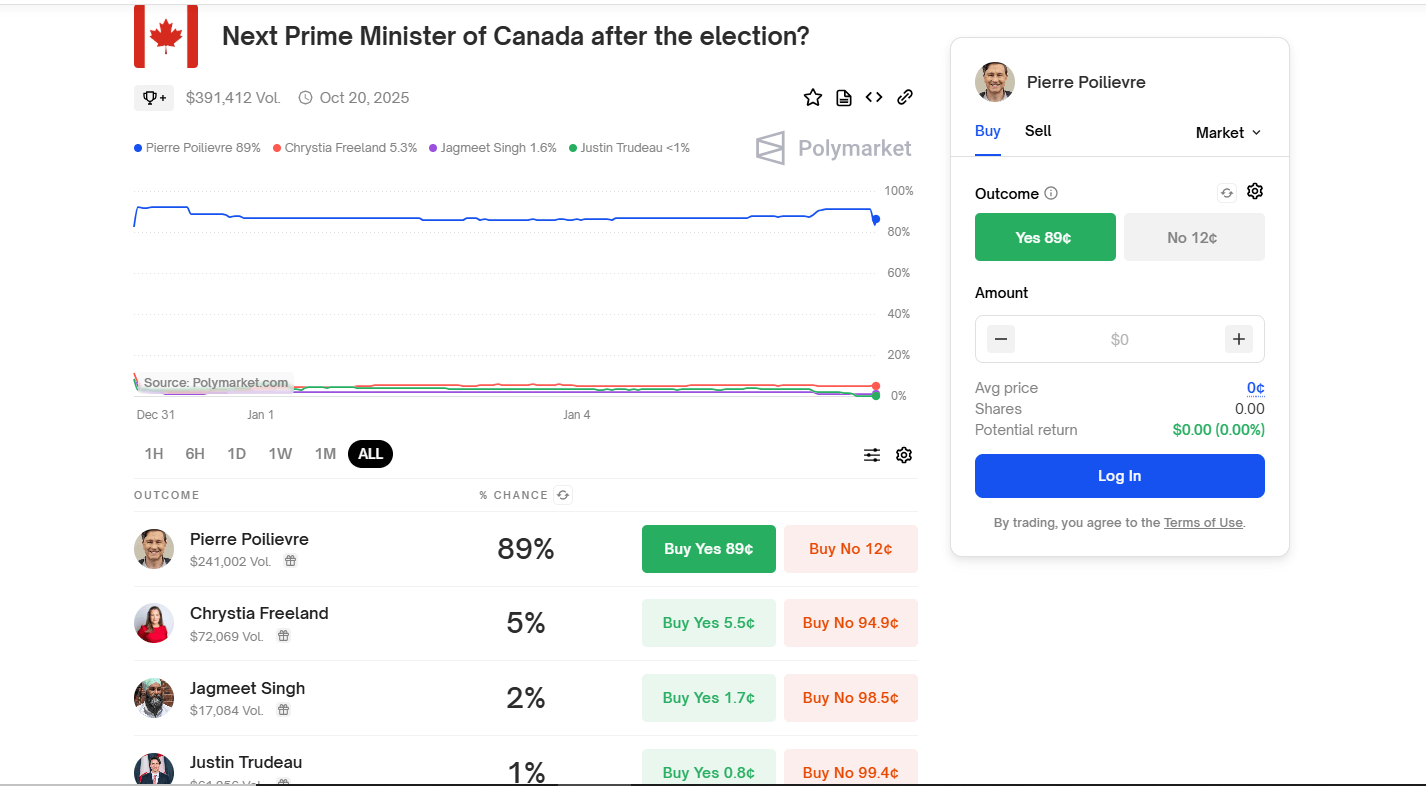Poièvre has an 87% chance of succeeding Justin Trudeau as Canada’s prime minister, according to Polimarket. Prime Minister Trudeau announced his resignation, citing internal conflict. Parliament was adjourned until March 24th. Poièvre’s anti-CBDC stance has made him popular, promoting the freedom of cryptocurrencies and cash.
Amid the dramatic changes in Canadian politics, the odds of Pierre Poièvre becoming the next Prime Minister jumped to 93% on the Polymarket prediction platform, but have fallen slightly to 87% at the time of writing.
The surge comes after Justin Trudeau, who served as Canada’s prime minister for nearly a decade, announced he would step down as leader of the Liberal Party and step down as prime minister once a new leader is chosen.
Prime Minister Justin Trudeau resigns
Prime Minister Justin Trudeau announced his resignation outside Rideau Cottage in Ottawa on January 6, 2025, citing internal party strife and a desire for Canadians to make a clear choice in the upcoming election. Prime Minister Trudeau, who will remain in an interim role until a new Liberal leader is elected, acknowledged the challenges facing his government, including criticism of his cabinet and prolonged deadlock in parliament.
The House of Commons will be adjourned until March 24, giving the Liberal Party time to elect a new leader.
Reflecting on his time in office, Prime Minister Trudeau highlighted important accomplishments including supporting Ukraine, managing the COVID-19 pandemic, combating climate change and preparing the economy for future challenges. But he expressed regret over the failure to reform Canada’s electoral system, which he believes would have allowed voters to rank multiple preferences in one vote.
Will Pierre Poièvre succeed Justin Trudeau as Canada’s next prime minister?
The top three candidates for the post of Prime Minister of Canada are Pierre Poièvre, Chrystia Freeland, and Jagmeet Singh.
However, Conservative Party leader Pierre Poièvre has emerged as the frontrunner. His policy emphasizes protecting Canadians’ financial privacy and freedom by opposing the creation of government-controlled digital currencies.
Poilievre is known for his staunch opposition to central bank digital currencies (CBDCs) and his advocacy for the freedom of cash and cryptocurrencies, and he enjoys significant support among voters.
Poièvre’s advocacy for cryptocurrency and blockchain innovation has garnered attention, with the Conservative leader expected to position Canada as a potential global hub for digital assets.
Polimarket’s predictions, based on a contract titled “Next Prime Minister of Canada,” also reflect growing confidence in Poilievre’s potential.
The value of the polymarket contract was more than $391,400, highlighting widespread interest in Canada’s political future.

As Canada prepares for a political transition, Polymarket data highlights shifts in voters’ priorities. Poièvre’s growing popularity highlights a growing appetite for change as voters consider his vision for the country’s economic and technological future.
The next federal election must be held by October 2025, and the political landscape is poised for major changes.

